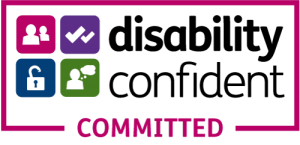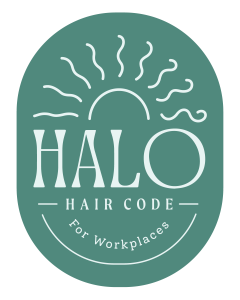Our Commitment to Equity, Diversity, Inclusion and Belonging
(formerly “Equality, Diversity and Inclusion”)
At Lotus Families, we support women, families and communities across East Sussex and Brighton & Hove who have experienced domestic abuse or child-to-parent violence. We believe every survivor deserves to feel safe, respected, welcomed and understood, whoever they are, and whatever their life experience.
We know that domestic abuse does not affect all communities in the same way. Experiences of harm and access to support are shaped by many factors, including racism, disability, poverty, sexuality, gender identity, culture, language, immigration status and rural isolation.
Our commitment to equity, diversity, inclusion and belonging (EDIB) is therefore central to everything we do. It is not an “add-on”; it is part of our identity and core values.
Our Ongoing EDIB Journey
We are proud of the steps we have taken over many years to make our services more inclusive and accessible. We also recognise that there is more to do, and we are committed to ongoing learning.
Creating Inclusive and Trauma-Informed Group Programmes
-
Since 2016, we have worked with survivors and specialists to continually develop our Recovery support for women.
-
In 2018, we redesigned the Recovery group with a University of Brighton postgraduate student to ensure it was clearly welcoming and inclusive of LGB women, using representative examples, imagery and language.
-
In 2019, we strengthened the programme by embedding trauma-informed outcomes, collaborative learning and empowerment-focused content.
"I liked it that the group was inclusive of same sex couples".
Women-Only Spaces and Inclusion Pathways
Our Domestic Abuse Recovery groups are women-only. This is because:
-
domestic abuse is a gendered crime
-
many survivors need single-sex spaces to feel psychologically safe
-
equalities law allows women-only provision in appropriate circumstances
“Thank you for offering a single-sex domestic abuse recovery group. My sister, a practicing Muslim, can attend because it is not mixed-sex.”
At the same time, we recognise that people of all sexes and gender identities may need domestic abuse recovery support. We have therefore developed lawful, trauma-informed pathways to ensure that everyone can access safe and appropriate help:
-
Trans women and non-binary people, who are not eligible for our women-only Recovery groups under sex-based service criteria, are offered IDVA-led one-to-one recovery support from Lotus Families. We recognise that trans and non-binary victim-survivors are often at increased risk of domestic abuse, and we are committed to ensuring they can access safe, affirming and appropriate support.
-
For group-based recovery support, we have a warm referral pathway to Brighton & Hove LGBT Switchboard, a specialist LGBTQ+ organisation.
-
Men who need domestic abuse support are signposted to Respect, the national helpline for men experiencing domestic abuse.
These pathways ensure that every survivor of any sex or gender identity can access safe, specialist and appropriate support, while we continue to maintain women-only therapeutic spaces where required under equalities law and trauma-informed practice.
Our CAPVA (child-to-parent violence and abuse) programme is open to parents and carers of all genders, recognising the different needs of that programme.
Reaching and Including Minority Communities
From 2022-2025, thanks to Lewes District Council we employed a Minority Communities Engagement Coordinator, funded to improve access to our services for families facing adversity. During this time we:
-
Tripled the number of Lewes District residents we supported.
-
Strengthened relationships with minority-focused groups, including:
-
Diversity Lewes
-
LOSRAS (refugees & asylum seekers)
-
Muslim Women’s Network
-
Jewish Women’s Aid
-
Seahaven Hard of Hearing Club
-
Make It Happen Team (SCDA)
-
Safe in Sussex / Across Rainbows
-
-
Updated our website and social media to be visibly inclusive and welcoming.
-
Improved our understanding of the needs of survivors with disabilities, including exploring British Sign Language (BSL) interpreters, live captions and hearing loops.
-
Learned more about digital exclusion and adapted our forms to ensure mobile-friendly simplicity.
Understanding Intersectionality
We know that many survivors experience more than one form of discrimination or disadvantage at the same time.
To better reflect this, we developed an Intersectionality Tool that helps staff and survivors explore how race, disability, immigration, gender, sexuality, caring responsibilities and poverty can intersect with domestic abuse.
This is now built into our group session plans, staff training and reflective practice.
Strengthened Governance and Organisational Culture
Our progress also includes internal development:
-
Adopting the Halo Code, affirming the rights of Black staff to wear Afro-textured hair without discrimination.
-
Creating a single, unified EDIB Statement of Intent for staff, volunteers, trustees and clients.
-
Strengthening governance, including Steering Group Terms of Reference.
-
Reviewing internal policies (e.g. holiday closure) to ensure they are fair and do not disproportionately disadvantage particular groups.
-
Training staff in neurodiversity, cultural humility and the experiences of Jewish and Muslim women facing domestic abuse.
Local Partnerships and Community Networks
We contribute to and learn from the wider sector through:
-
Lewes District Council’s Equalities Stakeholder Group
-
East Sussex Adult Social Care Inclusion Advisory Group
-
Voluntary Sector Alliance’s EDIB work
-
Local community networks across Lewes, Newhaven, Seaford and Peacehaven
Our goal is to be a trustworthy partner that listens, adapts and works alongside community organisations to improve safety and wellbeing.
What We Are Focusing on Next (2026-2028)
We are currently developing a new EDIB Strategy, setting clear priorities.
We will publish an annual update on our progress.
Our Commitment
We are committed to being an organisation where every survivor feels seen, safe and welcomed.
We will continue to:
-
listen to survivors with lived experience
-
learn from community partners
-
challenge inequality and discrimination
-
review our progress openly
-
adapt our services where we fall short
-
embed trauma-informed, culturally safe practice across everything we do
Equity, diversity, inclusion and belonging are not projects; they are ongoing commitments to our communities, rooted in our values and central to survivor safety, recovery and empowerment.
"I liked it that the group was inclusive of same sex couples".
If you’d like to receive any of our documents in an alternative format:
Please email [email protected] or phone 01273 612025.
T
Equality, Diversity and Inclusion (EDI): Short Version of Our Policy
This is a short version of our Equality, Diversity and Inclusion Policy. It summarises the values that guide our services and how we work with victim-survivors, families, staff, volunteers and partners.
At Lotus Families, we believe every person deserves to feel safe, respected, welcomed and understood. We know that experiences of abuse are shaped by many factors, including sex, gender identity, race, disability, culture, language, sexuality, poverty and immigration status, and we are committed to meeting people’s needs with sensitivity, dignity and care.
Our Values
We are a women-led and women-centred organisation delivering trauma-informed support across East Sussex and Brighton & Hove.
Everything we do is guided by the principles of safety, trust, choice, collaboration, empowerment, and cultural, historical and gender awareness.
Access to Our Services
-
Our Domestic Abuse Recovery groups are women-only, to ensure safety and psychological comfort for women recovering from male-perpetrated abuse.
-
We offer specialist IDVA support for trans, non-binary and intersex victim-survivors who cannot access our women-only groups, and a warm referral route to Brighton & Hove LGBT Switchboard for group-based recovery.
-
Men who need domestic abuse support are signposted to Respect, the national helpline for men experiencing abuse.
-
Our CAPVA (Child-to-Parent Violence and Abuse) programme is open to parents and carers of all genders.
-
We continually review our services to ensure they are accessible to survivors from minoritised, marginalised or underserved communities.
Our Responsibilities
-
All staff, volunteers and trustees receive training in EDI, trauma-informed practice and anti-discrimination, including cultural and historical awareness.
-
We welcome applications from people from a wide range of backgrounds and with lived experience.
-
Some frontline roles are advertised for women only, in line with the Equality Act 2010, to ensure the safety and needs of our service users.
Our Culture and Accountability
We want Lotus Families to be a place where everyone feels safe to speak up.
We review our policies regularly, learn from feedback, and work closely with local and national partners to keep improving access, equity and inclusion.
Our Full Policy
This is a short summary.
Our full Equality, Diversity and Inclusion Policy is available on request.
We are committed to addressing prejudice and discrimination by:
- Ensuring the effectiveness of our Equality, Fairness and Diversity policy
- Being clear and open about our values and approach
- Listening, learning and taking action to bring about positive change
We want anyone who is eligible to use our services to have the opportunity to do so.
The COVID-19 pandemic led to a transition to remote service delivery. We found this increased access for those with anxiety, travel restrictions or caring responsibilities, so we have continued to offer some remote services. However, it has also reduced equality of access for some.
If you would like to use one of our services but are currently unable to access them due to not having the necessary devices, wifi/data or tech literacy, please get in touch and we will try to identify a way of helping you to join us.
Lotus Families is a Disability Confident employer.
We believe that people with disabilities and long term health conditions should have equal opportunities to fulfil their potential and realise their aspirations.

Lotus Families has adopted the The Halo Code
We champion the right of staff to embrace all Afro-hairstyles and acknowledge that Afro-textured hair is an important part of our Black employees’ racial, ethnic, cultural and religious identities.
We are a community of women built on an ethos of equality and respect where hair texture and style have no bearing on an employees ability to succeed.
